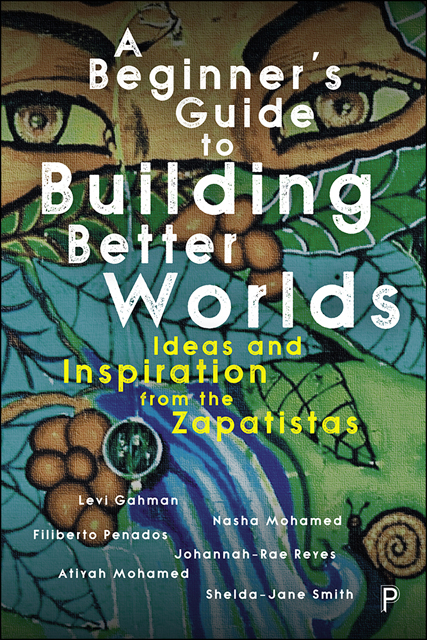Book contents
- Frontmatter
- Dedication
- Contents
- List of figures
- Guilty parties
- 1 Introduction: from liberal bystanding to emancipatory praxis
- 2 A world where many worlds fit
- 3 The coloniser’s model/neoliberal state of the world
- 4 Modernity-coloniality and Indigenous realities
- 5 Dispossession, extractivism and violence
- 6 Critical consciousness and praxis
- 7 Political education and radical pedagogy
- 8 Gender justice and social reproduction
- 9 Health, food sovereignty, solidarity economies
- 10 A battle for the soul of education
- Notes
- References
- Index
4 - Modernity-coloniality and Indigenous realities
Published online by Cambridge University Press: 13 October 2022
- Frontmatter
- Dedication
- Contents
- List of figures
- Guilty parties
- 1 Introduction: from liberal bystanding to emancipatory praxis
- 2 A world where many worlds fit
- 3 The coloniser’s model/neoliberal state of the world
- 4 Modernity-coloniality and Indigenous realities
- 5 Dispossession, extractivism and violence
- 6 Critical consciousness and praxis
- 7 Political education and radical pedagogy
- 8 Gender justice and social reproduction
- 9 Health, food sovereignty, solidarity economies
- 10 A battle for the soul of education
- Notes
- References
- Index
Summary
In the face of challenges such as global poverty, structural inequality, increasing intolerance, climate change and the current existential threat we are contending with vis-á-vis sustaining life on our planet, three questions press themselves on humanity: (1) Are alternative futures possible? (2) What might these alternative futures look like? (3) How might we bring these alternative futures to fruition? We realise we are not unique in asking these questions, as countless communities from across both the Majority World/ Global South and Global North have been grappling with them for generations. Even though they are very simple queries that many of us have pondered and engaged in conversations about at one point or another, they still are often quite overwhelming and depressing questions to think about. In many cases, responses to them often end with a deep sigh, silence and a sort of hopeless conclusion that the world cannot or will not be changed. Giving up on thinking through and finding answers to these questions, however, is not something we can afford to do.
In addition, the simplicity of these questions obscures their profundity – meaning, each query requires us to ‘read the world’, as Paulo Freire (2018) would put it, and to examine and interpret our realities/ worlds to determine what it is that we are seeking alternatives to. So, while they perhaps seem like stock or even clichéd questions, they nevertheless remain ‘generative themes’ in a Freirean sense (2018) – meaning, they require us to both think and dream outside of the prevailing box, to imagine alternative paths, to engage in dialectics with others, and to refuse to succumb to hopelessness. In brief, they both challenge and require us to resist surrendering to despair and to practice radical hope. It is here, in developing answers to these questions and in holding on to radical hope, that we feel Indigenous struggles, whatever their geography, can teach us much.
Indigenous struggle as knowledge production
There are at least two reasons why we should consider Indigenous voices and experiences. First, Indigenous people have faced a long history of exploitation and violence, and continue to be among the most affected by global challenges such as climate change, poverty, inequality and intolerance.
- Type
- Chapter
- Information
- A Beginner’s Guide to Building Better WorldsIdeas and Inspiration from the Zapatistas, pp. 47 - 57Publisher: Bristol University PressPrint publication year: 2022



